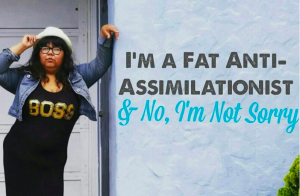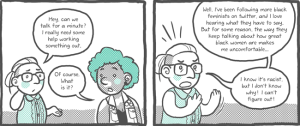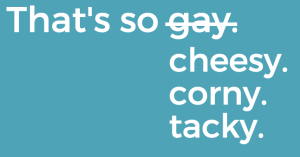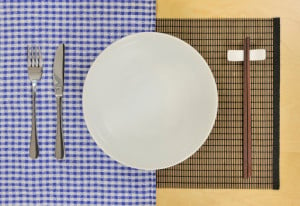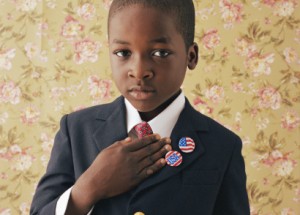
Source: On Point
My first time voting was on an absentee ballot in the presidential election of 2000. I voted for Al Gore.
I was eight years old.
Obviously, my “Absentee Ballot” was really a phone call to Mrs. Finnell’s classroom at Caughlin Ranch Elementary School. I was home sick with some kid virus.
But even then, My Kid-Self was adamant about voting.
I don’t know about you, but I want the children in my life to back away from the TV every once in a while and really care about voting – especially considering that their generation will be taking care of mine one day.
If you know anything about kids (especially kids nowadays), you know that a lecture about boring grown-up stuff will go in one ear and out the other.
Kids are selfish.
And I’m not just saying that because I’m a jaded New York City nanny.
Children, out of self-preservation instinct, only care about what benefits them.
Humans are animals. Baby animals need to survive. Makes sense.
So how do we make politics matter to children? Make the lesson benefit them.
Whether you’re a parent/guardian, cool family member, teacher, or caregiver like me, here are some ideas to cultivate politically-minded kids.
Pros and Cons
It may not seem explicitly political, but reasoning and decision-making are important to a child’s personal and political future.
You can help a child develop the skill of making strong choices by guiding them to think about the positive and negative points of their options.
For example, let’s say your eight-year-old buddy Shane wants to play soccer with his friends, but also has homework due tomorrow.
He wants to play first and do his homework later because it’s his knee-jerk reaction and the same choice his friends are making. Nothing like impulses and peer pressure, right?
Before rushing to the field, here’s what I would say to Shane:
“Are you sure you want to play soccer right now? We can go to the field now, but when we get home, you have to start your homework immediately. If we get the work done now and get it over with, we can go to the field later and then watch Chopped when we get home. What do you want to do?”
Whatever the child chooses, honor it.
School-age kids can understand cause and effect.
If you give a child two reasonable, safe options and clearly explain the potential outcomes, you are giving them age-appropriate power.
Even if a child regrets their choice later, the experience of controlling a situation and witnessing the outcome is critical.
At eight years old, they can decide when to do math homework.
At eighteen years old, they will be able to decide which political candidate to support.
I Approve This Message
Even the most active children with jam-packed schedules manage to find time for TV.
In addition to the dated gender tropes and racial stereotypes that fill most children’s programming, kids are inundated with advertising.
From commercials to product placements to celebrity endorsements, images of products are consistently dancing in the heads of little ones. They don’t have incomes, but they are already being swindled by marketing tactics.
Commercialism has crept into children’s lives, and they had no idea it was even happening.
Again, this doesn’t seem directly political, but the concepts of promotion, endorsement, and manipulation are more entwined in politics than we’d like to admit.
Teach kids about advertisements now so they won’t believe mudslinging campaign commercials when they get older.
Take into account the child’s age and interests, and ask questions like these:
“What was that commercial trying to sell?”
“How do you think the girl holding the baby doll feels? How do you think you’d feel if you had that baby doll?”
“Why is this ad comparing two different phone companies? Which company are they promoting? How can you tell?”
“Why do you think they show pictures of Starbucks cups and the Coca-Cola logo on The Voice?”
“Will eating Dunkin Donuts make you more like Eli Manning? Why or why not?”
Critical thinking questions such as these can make children more aware and literate of the media.
As they get older, media-literate children will be able to discern fact from manipulation.
This skill will come in handy when the toy commercials are replaced by election advertisements.
It’s Not Fair!
Children love equality.
They want the same stuff and the same opportunities as their peers. To a kid, equal treatment can translate to a sense of belonging.
Sometimes, life is straight-up unfair, especially by children’s standards. And I don’t believe in sugarcoating.
In society, certain groups of people have it way easier than others.
I obviously wouldn’t go into a full-on speech about marginalization and intersectionality to a first-grader, but I wouldn’t lie and say everyone has an equal shot.
Since children are generally sensitive about fairness, they will care if you discuss relevant inequalities.
If you are not a child’s parent, you should ask permission before breaching certain topics.
For example, if someone else’s child doesn’t know what the word “gay” means and doesn’t seem to understand or care, don’t bother explaining.
However, if a child knows real gay people and asks you if you are an ally, I don’t see the harm in answering the question.
Here are some ways to discuss equality with children:
“Some schools don’t get to have music class or chorus. How would you feel if you went to one of those schools?”
“The boy who tried to stop the fight got in trouble, too? Do you think it’s fair that he’s being punished the same way as the kids who were hurting each other? What would you do if you were the principal?”
Children who can empathize with others will be more likely to stand up for those in need.
As adults, this can translate to supporting civil rights movements or even becoming activists.
Follow the Rules
Maybe this is just a New York thing, but kids nowadays are so damn busy!
Picture this: You roll out of bed, rush to school, sit in a classroom for six hours plus a twenty-minute lunch break, rush home, do homework, work with a tutor, do more homework, go to soccer practice, rush home, scarf down dinner, shower, sleep, and wake up to do it all again.
Now picture doing all of that as a seven-year-old.
I got tired just typing that.
All this regimented activity and institutionalized everything adds up to a whole lot of rules.
Classroom rules, playground rules, homework rules, house rules, video game rules, soccer field rules, dinner table rules, bedtime rules – the list goes on and on.
And kids absolutely get sick of it all. Can you blame them?
If you want children to understand (and hopefully follow) rules, it might behoove you to explain why they exist in the first place.
When children understand why rules exist, they will go into the “Real World” understanding the importance of policies and laws.
Obviously, you can’t explain the purpose of a crosswalk when a kid’s attempting to jaywalk in front of a city bus, but here’s a way to explain rules to a child:
“If this wasn’t a homework assignment, I would totally let you use marker to color in your picture. Your teacher made a classroom rule that you have to use either colored pencils or crayons on your drawing assignments. If you use markers, the ink could bleed through to the back of your paper. You know how your teacher likes to save trees by using less paper? One way she does that is printing your homework on the fronts and backs of pages. If you were to use a marker on your drawing assignment, the ink could make the math homework on the back look really messy. So, would you like to use colored pencils or crayons?”
Young children may not know or care about the intricacies of political malfeasance, but they can understand that their snack money is for snacks and not the sticker machine and why.
Rock the Vote
Forgive me if the above ideas were more implicitly political, but here’s something more overt: Introduce children as young as four years old to the concept of voting.
A child who is barely out of diapers won’t care about Bill DeBlasio’s mayoral win, but you bet your ass they will care about buying a chocolate or vanilla cake for their class party.
From raised hands to anonymous scrap-paper ballots, kids can learn early on that their voice counts. They also can begin to understand that losing is not the end of the world.
Here are some topics to get children voting:
- Pizza vs. Sushi
- Pie vs. Cake
- Good Luck Charlie vs. Lab Rats
- Ice Skating vs. Children’s Museum
As children get older, reasonable votes may include kid-campaigning or even write-in votes. You can act as the Electoral College if the popular vote is tied up. The kids won’t even realize just how similar their chocolate vs. vanilla decision is to the presidential election.
***
Children are complicated.
They are just tiny, developing people, yet we as a society feel an intense need to protect them from the harshness of adult reality.
I can’t tell you how many times I’ve heard an otherwise progressive parent tell me that they prefer lying or omission to telling their children even a simplified version of the truth.
I’m not saying you should get your second-grader caught up with the Tea Party’s efforts or even tell them which political groups are “Right” or “Wrong.”
Children learn through play and experience in addition to the classroom.
If you can implement concepts of our political landscape into a child’s everyday life, they will begin to understand the way things work.
I don’t know about you, but I want America’s future adults and voters to have reasoning skills, media literacy, a propensity toward equality, understanding and importance of rules (and when to break them), and applying all those skills into votes.
Want to discuss this further? Login to our online forum and start a post! If you’re not already registered as a forum user, please register first here.
Maddie McClouskey is a Contributing Writer for Everyday Feminism. She’s a twenty-something lesbian in New York City and currently writes weekly dating advice pieces for the LGBTQ event app and website SheSeekOnline and was a regular contributor to the sexuality and feminism site ToughxCookies. When she’s not writing articles about gayness, she’s performing stand-up comedy, singing show tunes to her girlfriend and dog against their will, or making up jokes for Twitter @SoundofMaddie. Read her articles here.
Search our 3000+ articles!
Read our articles about:
Our online racial justice training
Used by hundreds of universities, non-profits, and businesses.
Click to learn more





